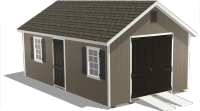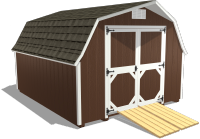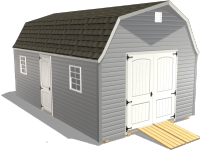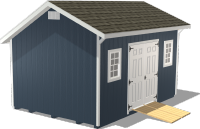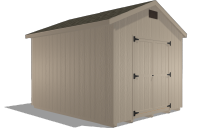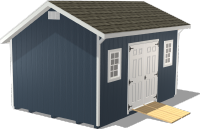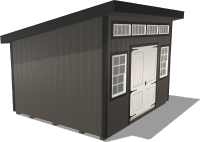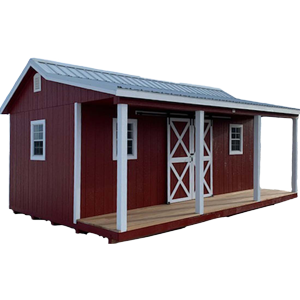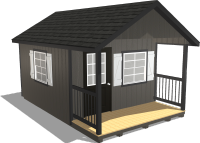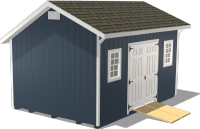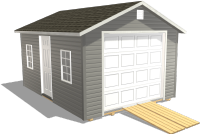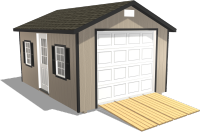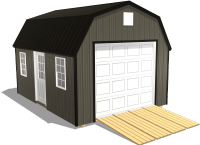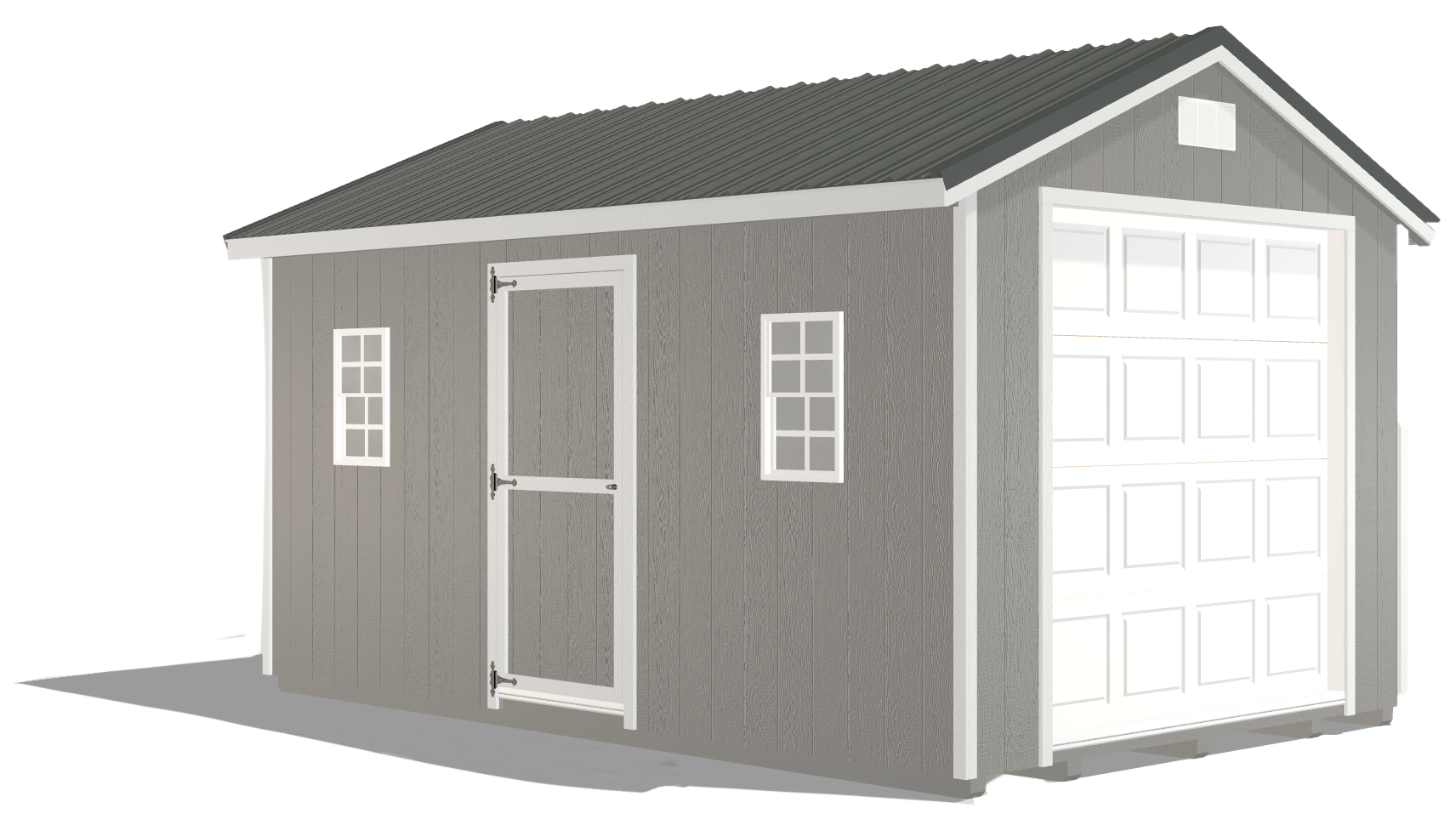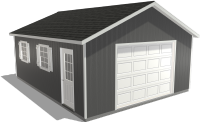FAQs for New Chicken Owners: Finding the Perfect Coop
by Dakota Storage Buildings, on January 17, 2024
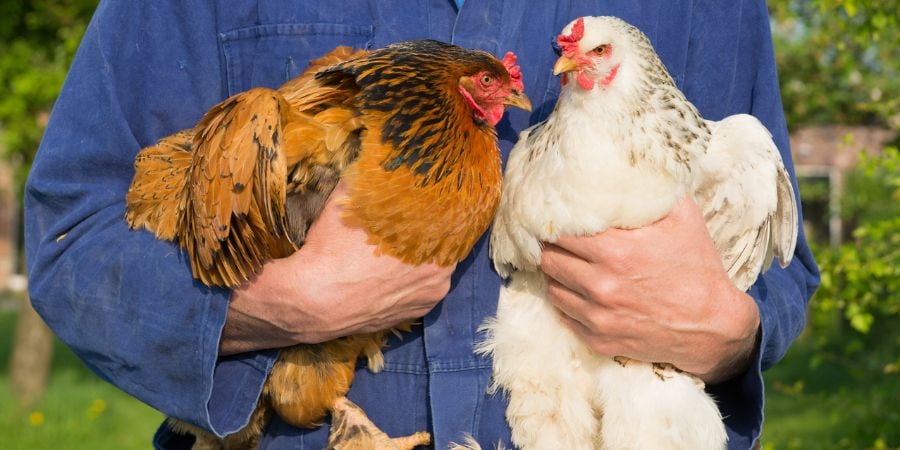
Whether your motivation for raising chickens is the appeal of fresh, tasty eggs each morning, the satisfaction of nurturing these charming animals, or the simple joy of watching them roam around your garden, the experience is rewarding. But before you embark on this journey, it is crucial to have the right knowledge and equipment, especially when providing shelter for your flock. A proper coop protects your chickens from the elements — be it the scorching sun, pouring rain, or the biting cold. It is also their sanctuary, a safe place where they can rest, sleep, and lay eggs without fear of predators. For those interested in breeding chickens, well-designed backyard chicken coops are indispensable for the health and safety of both hens and their chicks.
But a coop is not just about safety and functionality. It is also about comfort and well-being. Chickens are intelligent, curious creatures that need space to move, explore, and engage in natural behaviors. A well-planned coop can help prevent stress and boredom, leading to a healthier flock. This is especially important if you are planning to collect eggs, as the environment significantly impacts the hens' laying capabilities. Choosing the right coop is a fundamental step in your chicken-keeping adventure.
Key FAQs Addressed for First-time Chicken Keepers
As a new chicken owner, you will likely have many questions about starting your backyard flock. From understanding the legalities of keeping chickens in your area to figuring out the right type of coop, these FAQs are designed to address the most common concerns and curiosities you might have. Whether it is about space requirements, feeding, health, or choosing between an enclosed or free-range coop, these answers will provide you with the foundational knowledge you need to start your chicken-keeping journey on the right foot.
Is It Legal in My Area?
Before you even consider the type of coop or the breed of chickens, you need to check the legalities. Keeping chickens is subject to local laws and ordinances that vary greatly. These regulations can cover a range of aspects, from the number of chickens allowed to restrictions on roosters due to noise or even specific coop placement rules about neighboring properties. Ignorance of these laws can lead to fines or the heartbreaking need to rehome your flock. Contact your local government or check their website for information on backyard poultry laws in your area.
Do I Have the Space?
The amount of space you have available is crucial in determining not just the size of the coop but also the number of chickens you can responsibly keep. Chickens need room to move, forage, and express natural behaviors. A cramped coop can lead to stress, pecking, and other health issues. As a rule of thumb, each chicken should have at least 2-4 square feet of space inside the coop and about 8-10 square feet in an outdoor run. Remember, more space is always better, and if you are limited in space, consider keeping a smaller flock.
What Do I Feed Them?
Feeding chickens is not as simple as just throwing out some grains or cracked corn. Their diet needs to be well-balanced and appropriate for their age and production stage. Starter feeds, grower feeds, and layer feeds are formulated to meet the nutritional requirements of chickens at different stages of their lives. Supplementing their diet with kitchen scraps and allowing them to forage can add variety but should not replace good quality commercial feed. Also, be mindful of foods that are harmful to chickens, like fruits with seeds, potatoes, and onions.
How Do I Protect My Flock From Disease?
Disease prevention in chickens is multifaceted. Starting with disease-free birds from reputable sources is key. Implementing biosecurity measures, such as limiting flock exposure to wild birds and rodents, is also vital. Regularly cleaning and disinfecting the coop, providing fresh water and proper nutrition, and observing your chickens daily for signs of illness can go a long way in keeping your flock healthy. In some regions, vaccinations may be recommended or required, so consult a local veterinarian familiar with poultry.
What Kind of Coop Do I Need?
Choosing the right coop for your chickens is vital for their safety, health, and egg production. Depending on your circumstances and the nature of your backyard, you may consider either an enclosed coop or a free-range coop setup. Here are some considerations for each.
Enclosed Coop
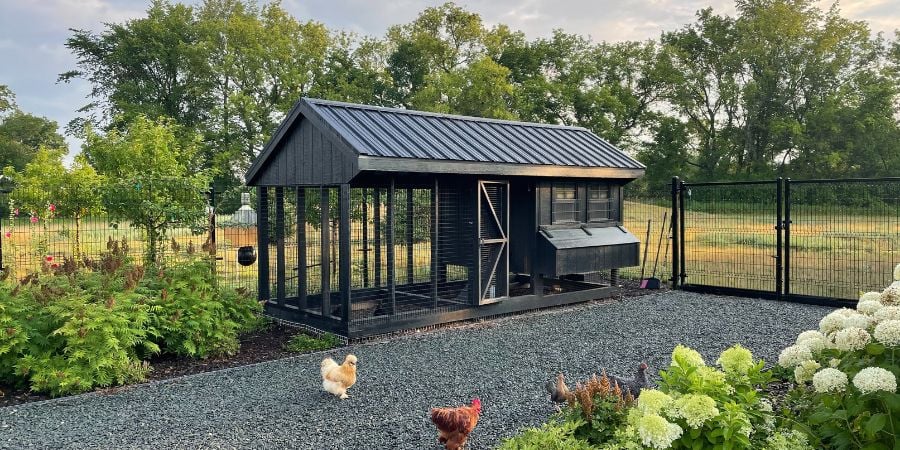
An enclosed coop is ideal for areas with limited space or higher predator risks. This type of coop typically includes a secure chicken house for sleeping and laying eggs, connected to an enclosed run.
Security: The enclosed design protects chickens from predators while still allowing space to play and forge outside of the house.
Weather Protection: They offer better protection against adverse weather conditions. Insulation and proper ventilation can be incorporated to suit your climate.
Space Efficiency: These backyard chicken coops are designed to maximize the use of space, often featuring vertical designs with integrated nesting boxes and roosts.
Ease of Maintenance: Many enclosed coops are designed with cleaning in mind, featuring removable trays and easy access to all areas.
Free-range Coop
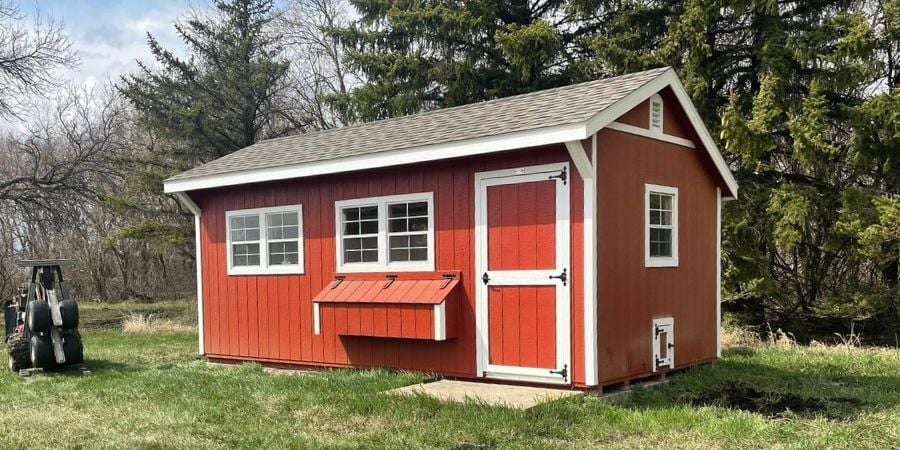
A free-range coop setup is suitable for larger yards and areas where chickens can safely roam during the day.
Space and Exercise: This option provides chickens with more space to forage, exercise, and exhibit natural behaviors, contributing to their overall health and happiness.
Natural Diet: Free-ranging chickens can supplement their diet with insects, grass, and other natural food sources.
Environmental Enrichment: The diverse environment keeps chickens mentally stimulated and engaged.
Shelter: The coop in a free-range setup is primarily used for nighttime shelter and egg laying. It should still be secure, well-ventilated, and comfortable, but the emphasis is on ease of access and integration with the outdoor environment.
Both types of backyard chicken coops require thoughtful consideration of size, climate suitability, ease of cleaning, and aesthetics. Whether you choose an enclosed coop for its security and space efficiency or a free-range setup for the benefits of natural foraging and exercise, the key is to ensure a safe, comfortable, and stimulating environment for your chickens.
Healthy, Happy Hens: Understanding the Essentials of Chicken Care
Creating a conducive environment for your chickens goes beyond just providing a physical structure. Ensuring their happiness and health is a continuous commitment that involves various aspects of care and management.
Space and Comfort
Space is not just a luxury but a necessity for chickens. Overcrowded conditions can lead to stress, bullying, and the spread of diseases. Each chicken should have enough space to move freely, stretch their wings, and engage in natural behaviors. This is typically 3 square feet per chicken inside the coop and 8-10 square feet in the run. Additionally, the coop should have proper bedding, such as straw or wood shavings, which needs to be changed regularly to maintain hygiene.
Ventilation and Temperature Control
Good ventilation is crucial to prevent respiratory issues and the buildup of harmful gases like ammonia. However, this does not mean the coop should be drafty. The key is allowing air circulation while protecting the birds from direct wind, especially in colder climates. In hot weather, shade and fresh water are essential to prevent overheating.
Nesting and Roosting
Nesting boxes are vital for egg-laying hens. Ideally, there should be one nesting box for every three to four hens. These should be kept clean and filled with soft nesting material. Roosting bars are also important as chickens naturally seek high places to sleep. Ensure the bars are wide enough for the chickens to comfortably sit on and spaced out enough to prevent overcrowding.
Health Monitoring and Care
Regular health checks are important. Look for signs of illness or distress, such as changes in eating habits, lethargy, abnormal droppings, or feather loss. Establish a relationship with a vet who is experienced with poultry to address any health concerns promptly. Vaccinations and parasite control are also aspects to consider based on your location and the specific needs of your flock.
Environmental Enrichment
Chickens benefit from environmental stimulation. This can include perches, dust baths, and areas to forage and peck. These activities not only keep them physically active but also mentally stimulated, reducing the likelihood of stress and aggressive behaviors.
By addressing these key areas, you can create a thriving environment for your chickens, ensuring they remain happy and healthy. Remember, a happy chicken is often a productive chicken, especially when it comes to egg laying.
The Essential Chicken Coop Guide: Making the Right Choice for Your Backyard Flock
Raising chickens is both challenging and rewarding. New chicken owners often find themselves overwhelmed by the plethora of choices and considerations. From selecting the right breed to understanding their dietary needs, from creating an ideal living space to protecting them from predators and diseases, the responsibilities are extensive but manageable with the right information. Our comprehensive guide, "Evaluating Chicken Coops: Finding the Best-fit for Your Flock," is crafted to ease this journey for you. We highlight key features every coop should possess, tailored to different flock sizes and backyard spaces. Whether you’re planning a free-range haven or a more secure, enclosed setup, our insights aim to cater to a variety of needs and preferences. Download our free guide today to start your chicken-raising adventure with confidence!




